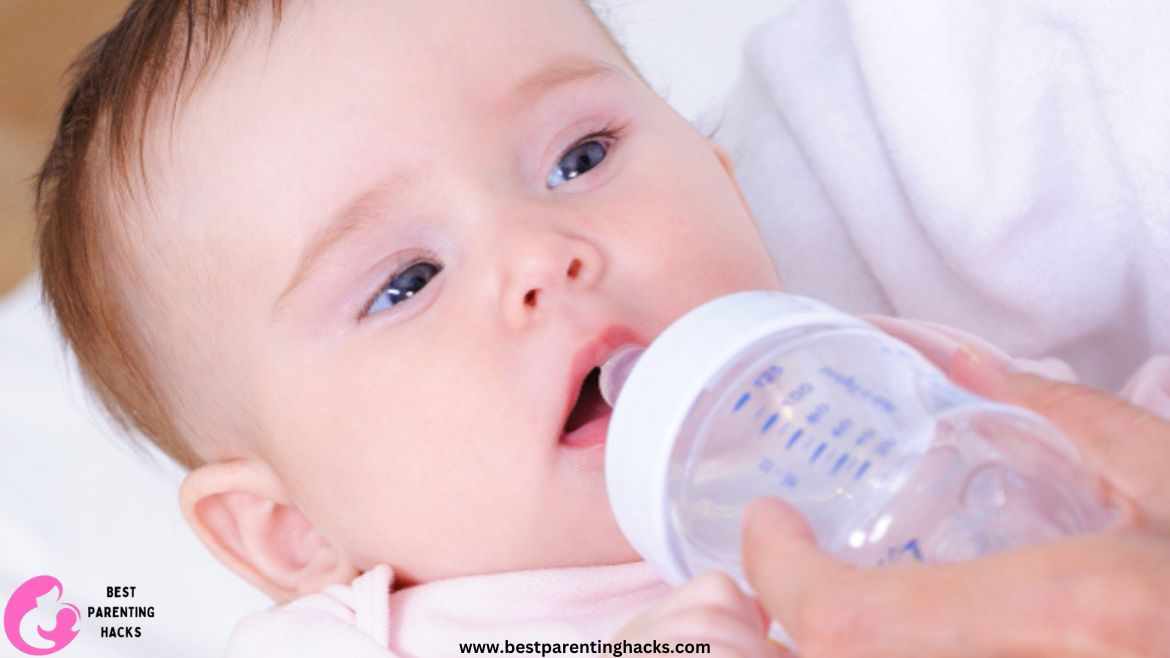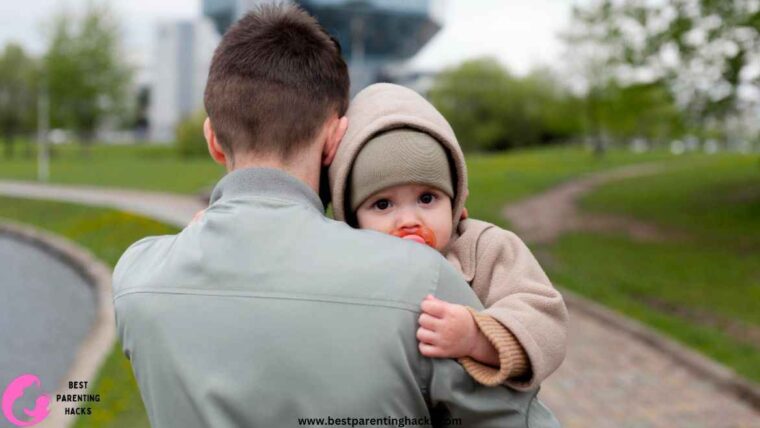Table of Contents
One of the most terrifying things a parent can experience is learning they’ve done something dangerous, like accidentally feeding their child tap water. It’s a typical error, particularly in the busy world of parenthood when things may go wrong with routines. This essay is intended to address that exact worry by offering thorough advice on what to do in such a circumstance.
There has been discussion among parents and medical experts over the safety of providing tap water to a newborn. The baby’s immature immune system and any possible health hazards from tap water pollutants are the main causes of concern. We go into further depth about these hazards in the second section of this article, providing you with some reasons why tap water might not be the greatest option for your baby. Let’s tackle the important query first: if you’ve unintentionally given your infant tap water, the best course of action is to remain calm. Generally speaking, if the water quality in your location is good, a few sips of tap water shouldn’t be harmful. As we shall cover in the upcoming sections, you must keep an eye out for any strange symptoms your infant may be exhibiting and take the necessary measures.
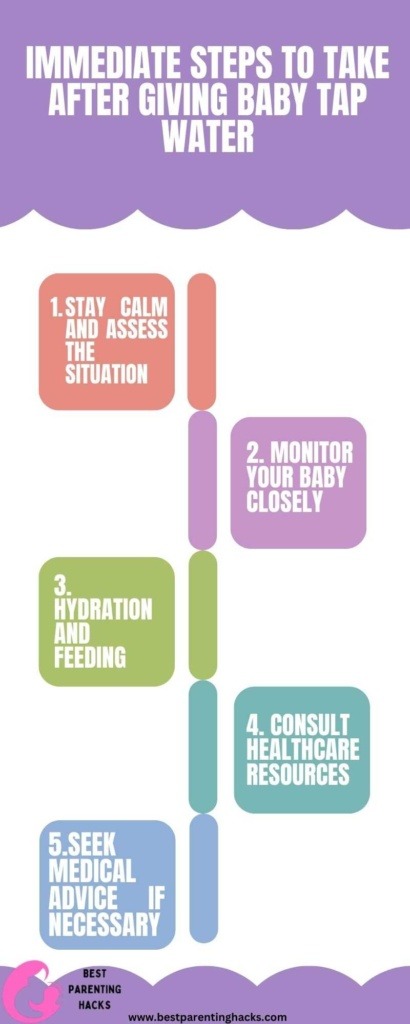
Immediate Steps to Take After Giving Baby Tap Water
- Stay Calm and Assess the Situation
- Keeping your composure is the first step. Evaluate the amount of water your infant drank and think about the quality of your tap water.
2. Monitor Your Baby Closely
- Keep an eye out for any indications that your baby is in pain, distressed, or acting strangely. This involves adjustments to sleeping, waking, or feeding schedules.
3. Hydration and Feeding
- Make sure your baby drinks plenty of their regular milk to be hydrated. Refrain from supplying more water as this might make any possible problems worse.
4. Consult Healthcare Resources
- To find out more about the quality of your tap water if you’re not sure if it’s safe, contact your water supplier or nearby health resources.
5. Seek Medical Advice if Necessary
- Please don’t hesitate to seek guidance from your doctor or other healthcare provider if your infant exhibits any symptoms of sickness or if you have any serious concerns.
You Might Also Like to Read: Can My Baby Sleep in Snuggle Me?
Understanding the Risks of Tap Water for Babies
- Why Tap Water Might Be Harmful to Babies
- Although tap water is usually safe for adults, it may include chemicals, germs, and viruses that are dangerous to young children. Because their immune systems are still maturing, babies are particularly susceptible to these possible risks.
- The mineral concentration of tap water is another issue. Although adult quantities of these minerals are usually harmless, a baby’s growing kidneys may not be able to properly filter them due to their high concentration.
2. Water Intoxication in Infants
- An infant may suffer from water intoxication, a dangerous illness that results from an excess of water in the system that dilutes vital electrolytes like sodium. This may result in a hazardous imbalance that impacts both physiological and mental processes.
- Lethargy, irritation, swelling in the face or limbs, and in more extreme situations, seizures or coma, are signs of water intoxication.
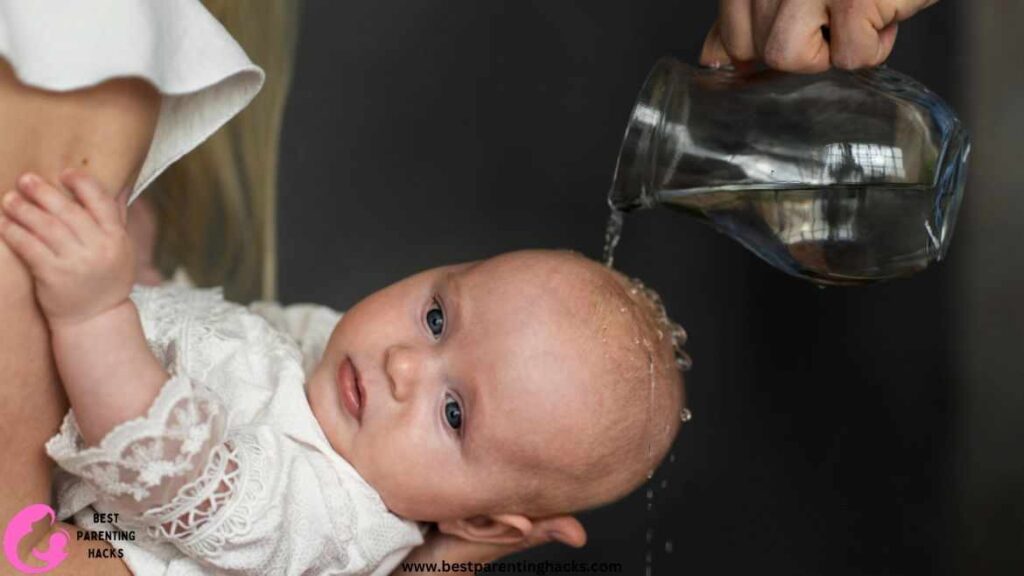
When to Consult a Doctor
It’s critical to know when to seek medical attention if you’ve fed your kid tap water and are worried about any possible consequences.
1. Observe for Any Immediate Reactions
- Keep an eye out for any sudden responses in your infant, such as vomiting, diarrhea, or behavioral changes.
2. Monitor for Symptoms of Water Intoxication
- Serious symptoms including swelling, extreme drowsiness, or seizures need to be treated right away by a doctor.
3. Consider the Amount of Water Consumed
- If your baby has consumed a significant amount of water, it’s advisable to visit a doctor even if they don’t show any symptoms straight away.
4. Be Aware of Your Water Quality
- If you are concerned about the quality of your tap water, especially known contaminants or recent water safety advisories, consult a physician.
5. Trust Your Instincts
- If you feel something is amiss as a parent, go with your instincts and consult a doctor.
You Might Also Like to Read: When Can Babies Be Around Bonfires?
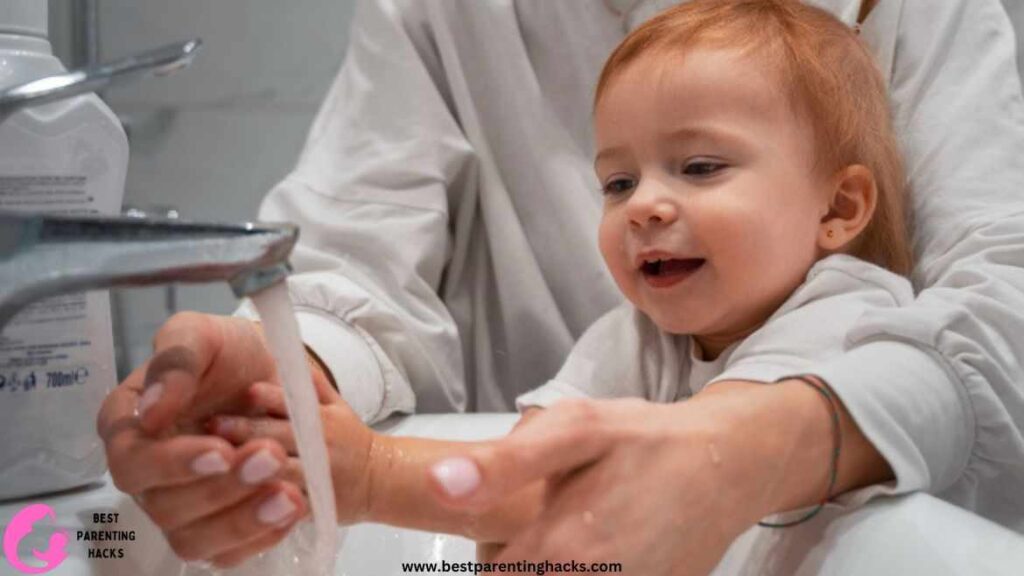
Safe Water Practices for Infant Feeding
1. Boil and Cool Water for Formula
- Before using water to make formula, it should always be boiled for at least a minute and allowed to cool to a safe temperature.
2. Use Bottled Water When Necessary
- Use bottled water marked as safe for infants if you’re not confident about the quality of your tap water.
3. Follow Formula Preparation Guidelines
- Make sure you follow the directions for preparing the formula precisely, including the water-to-powder ratio.
4. Regularly Check Water Quality
- Remain aware of any cautions that your local health authority may issue regarding the quality of your tap water.

Conclusion
Although feeding your kid tap water by accident might be upsetting, it’s crucial to keep in mind that most of the time it won’t be harmful. Remain composed, keep an eye on your child, and take the necessary precautions to keep them safe. When feeding a baby, always use safe water, and set up habits to avoid similar situations in the future. For peace of mind, get advice from a healthcare provider if you’re ever unsure. Recall that you are trying your best in your role as a parent, and mistakes are to be expected. The way you respond to them and the attention you provide your child is what counts most.
FAQs
1. When Can Babies Drink Tap Water Safely?
- Generally, babies can begin consuming tiny quantities of tap water around six months, but it’s better to speak with your physician first.
2. Does Baby Formula Always Need Boiled Water?
- Boiling water is an essential step in ensuring that infant formula is free of pollutants and dangerous microorganisms.
3. Can Babies Get Intoxicated by Tap Water?
- Although it happens seldom, newborns who drink too much tap water may become intoxicated, which will upset their electrolyte balance.
4. What Indicates a Baby Is Overwhelmed by Water?
- Lethargy, vomiting, and, in more severe situations, seizures are among the symptoms. Emergency medical assistance is necessary.
5. What Is Too Much Water for a Baby?
- Water should not be given to infants less than six months. Small sips are usually safe after six months, but for more specific advice, speak with your physician.
6. What Should I Do If I’m Concerned About the Safety of My Tap Water?
- If you’re unsure if tap water is healthy for your baby, buy bottled water that has been designated as such or get advice from the local health authority.
7. Can a Baby’s Feeding Behavior Be Affected by Tap Water?
- Giving water to a baby might cause stomach fullness and decrease the amount of essential nutrients they get from formula or breast milk, especially if the infant is younger than six months old.

